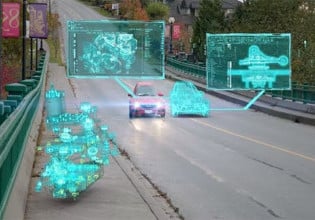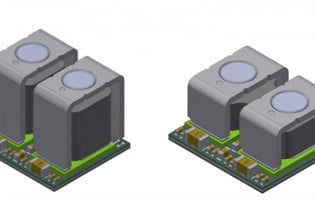Power Meets Medicine: The Importance of Power Engineering and Power Electronics
Power engineering and electronics, while maybe not as popular as other forms of engineering, is of great importance to the world around us — especially the medical world.
COVID-19 has shown us just how important engineers are and the technology they produce can be. From power generation to transportation and communication technologies to average kitchen appliances, power electronics and the engineers behind these electronic devices are everywhere.
This short series of articles will explore the many ways power electronics permeate our daily lives — whether you are a power engineer working to develop the newest technology in the industry or anyone who benefits from modern power technologies.
In part two of this series, we take a look at how the medical industry and the power industry intersect.
Not long after COVID-19 spread across the world, power companies around the world sprung into action. Some donated personal protective equipment to local causes and others shared their resources and engineering expertise to advance much-needed medical technologies.
Within the last three months, we’ve seen an array of power supplies, batteries, sensors, and more promoted for the use of medical devices either needed to fight COVID-19 or simply to keep hospitals and medical centers standing. However, it is not just during this pandemic that power electronics have been one of the most important aspects of the medical industry.
Utilizing the company's expertise in power management, Monolithic Power Systems helped develop an emergency ventilator. Image courtesy of Monolithic Power Systems.
It is difficult to think of medicine without power electronics. Medicine and power electronics work together to create successful medical applications and technologies.
Power engineering is at the heart of innovations within the medical industry.
There have been many essential medical developments in the past, such as X-ray machines and pacemakers that utilize power electronics. Now, as healthcare becomes increasingly digitized with networking, smart data analysis, and telemedicine, power electronics have become an integral element for the advancement of health-care systems around the world. For a long time, medical scientists and power electronics engineers have worked together to develop products that improve patient care and treatment.
Doctor Robot
Surgery is habitually considered a manual discipline. But, we are on the verge of a new era, where innovative new surgeries are becoming digital.
You won’t see machines performing highly detailed surgeries without doctors present anytime soon, however, artificial intelligence, robotics, model-based surgery, and other principles are present in the medical field.
This area of the field is on the edge of extensive change that means stronger diagnostics, less invasive surgery, briefer waiting times, lessened infection rates, and improved long-term survival rates. Surgery is safer and more accessible, with better results and experience for the patients.
A pool of robot technologies has close relevance to the healthcare field – e.g., robot-assisted-surgery, actuated and sensory prostheses, endoscopy, robotic exoskeletons, targeted therapy micro-robot, disinfecting robots, clinical training, companion robots, telepresence, robotic nurses, medicine vending machines, diagnostics, robotic-assisted biopsy, epidemiology, antibacterial nanorobots, and medical transportation. All of these technologies require power electronics to function.
Wearable Medical Technology
Wearable technology includes electronic devices that consumers can wear, such as fitness technology products, to measure how much physical activity they have completed each day.
Many of Maxim Integrated's semiconductor devices are used in essential COVID-19-related equipment, as well as everyday medical uses, such as wearable heart monitors.
Smart health watches, fitness trackers, blood pressure monitors, ECG monitors, and biosensors, once connected to the Internet, allow doctors to monitor their patients' health remotely and provide constant care to people with chronic illnesses.
This intelligent data analysis can help the healthcare system further optimize its connection to patients.
Bioelectronics
Bioelectronics is an emerging field that develops electronic systems to interact with biological tissues.
Biomedical devices are a combination of many electronic technologies. Some of the most biomedical devices utilize sensors, microcontrollers, and more.
Electronics allows us to monitor and control the function of an engineered tissue following transplantation.
Medical Cybersecurity
Digitization offers great opportunities, but it can also carry significant risks. Malicious programs have increased rapidly for years. Too often, cybercriminals encounter inadequately protected networks and carefree users. Cases range from data theft with extortion and sabotage to attempts to tamper with systems and devices.
Data centers must be powered with the strongest and most advanced technology to protect such vital information.
In the hospital environment, cybersecurity is of vital importance for its direct link with the protection and privacy of patient information. Hospitals have highly sensitive information with the clinical records of the patients and handle vast amounts of databases with information and medical knowledge to be duly protected. Data centers must be protected with the strongest and most advanced technology to power these kinds of data centers.
These are just a few sectors of the healthcare industry that rely on power engineering. When engineers and healthcare providers work together, the outcome for both the technology and the patient in need is far greater.
How have you seen power engineering and medicine intersect? Let us know in the comments below.
Read more from this series of articles on the importance of power electronics engineering:
The Importance of Power Engineering
Power Electronics in ICT Systems
Power Electronics and Power Systems
About the author
Lorenzo Mari has been a university professor since 1982, teaching topics as electric circuit analysis, electric machinery, power system analysis, and power system grounding. As such, he has written many articles to be used by students as learning tools. He also created five courses to be taught to electrical engineers in career development programs, i.e., Electrical Installations in Hazardous Locations, National Electrical Code, Electric Machinery, Power and Electronic Grounding Systems and Electric Power Substations Design. As a professional engineer, Mari has written dozens of technical specifications and other documents regarding electrical equipment and installations for major oil, gas, and petrochemical capital projects. He has been EPCC Project Manager for some large oil, gas & petrochemical capital projects where he wrote many managerial documents commonly used in this kind of works.









